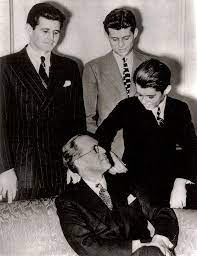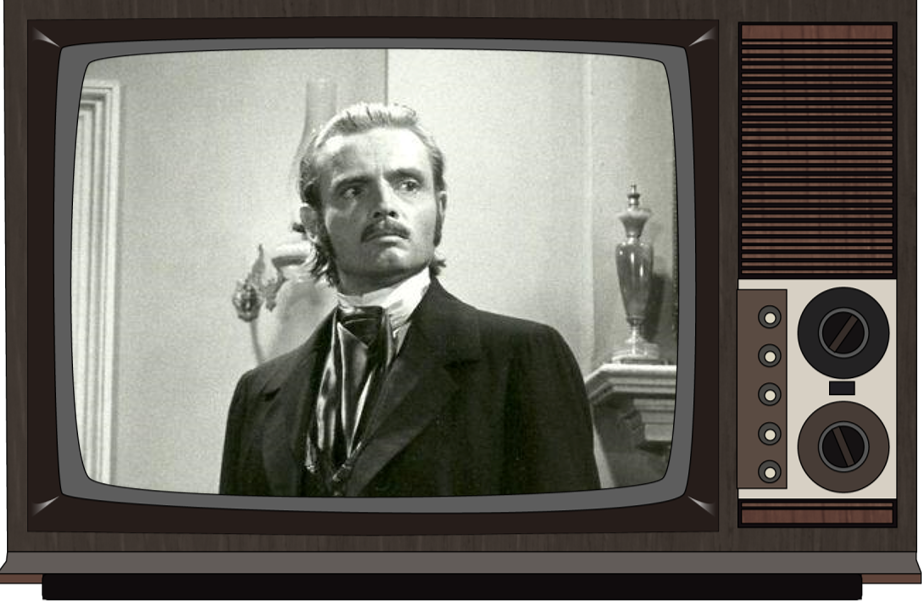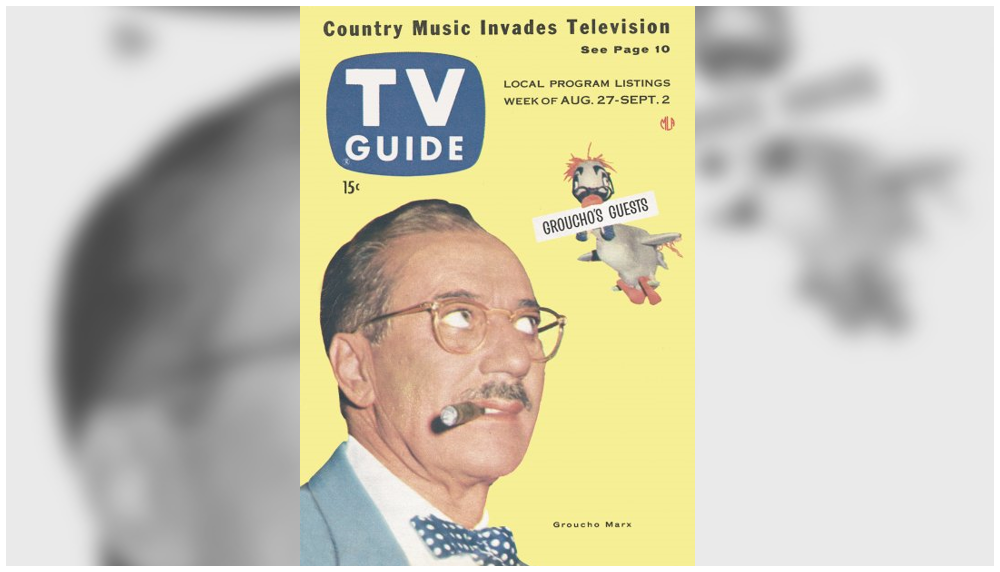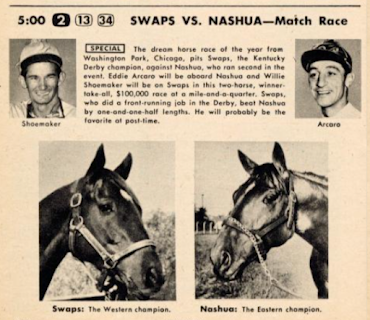Shows
I’ve Watched:
|
Shows
I’ve Added:
|
Captains and the Kings
|
Harbor Command Science Fiction Theatre
|
Quiller
|
|
I first saw Captains and the Kings during its original airing back in 1976, when it was the inaugural offering of NBC's new series Best Sellers—a series comprised entirely of miniseries—and at some point, perhaps during the fourth episode, I had one of those "Hey, wait a minute!" moments when it occurred to me I'd seen this story before. Not the actual miniseries, of course, nor any previous adaptation of Taylor Caldwell's best-seller, which had only been published in 1972.
Nonetheless, even at age 16 I had a premonition as to how things would end, and when it concluded, after eight chapters and nine hours, it was indeed as I had expected; all the parallels became obvious, and I recall having felt somewhat cheated that it could be so predictable. All the same, the miniseries had made an impact on me; I was at that impressionable time in life when one starts to assess his future, and one of the things I knew was that I someday wanted to write. (I also wanted to be a politican and a sportscaster; one out of three isn't bad, I guess.) I was intrigued by the relationship between a miniseries and the book that spawned it, and I've been interested in that ever since; the same goes for Captains and the Kings.
I won't spoil the fun for those of you who haven't seen it (although if you aren't planning to watch it but still want to know how it ends, email me and I'll provided you with the details), but, after running across the complete series at Half Price Books, I was interested in finding out whether or not it still held up, nearly 50 years later. And the answer to that is yes—and no.
Captains and the Kings is dominated by the performance of Richard Jordan as Joseph Armagh, an Irish immigrant living out the ultimate American dream, a rags-to-riches story of becoming one of the wealthiest and most powerful men in the United States, an amalgam of John D. Rockefeller, Andrew Carnegie, and every other robber baron and business magnate you can think of, determined to make people and events bend to his will. He is, to be sure, naturally gifted at business, but he's also an exploiter of workers, indifferent to ethics and morals, distainful of his wife, and single-minded in pursuit of his life's goal, to which all his fortune and power is devoted: make his son Rory the first Irish-Catholic president of the United States.
 |
| Joseph P. Kennedy with sons Joe Jr., Jack, and Bobby |
For instance: compare Armagh's daughter Mary, who suffers brain damage in a riding accident and winds up little more than a vegetable, with Joseph Kennedy's daughter Rosemary, who suffered from violent personality swings that resulted in her being subjected to a lobotomy, which left her unable to care for herself. Check.
Then there's Armagh's younger son Kevin, killed while fighting with Theodore Roosevelt in the Spanish-American war, who serves as the stand-in for Joseph Kennedy Jr., the Kennedy son who was supposed to become president but was killed during World War II. Check.
And there's Rory's secret wife, Marjorie; Armagh had the marriage wiped from the books because he had arranged for Rory to marry the Catholic daughter of a political ally*. Does that find its parallel in the rumor that JFK was secretly married to socialite Durie Malcolm in 1947, only to have Joe arrange for the marriage to be annulled and the records made to disappear? Check. So, as we watch Rory's presidential campaign unfold—managed, of course, by Rory's brother Brian, just as JFK's was managed by RFK—we pretty much know who he's supposed to be, right?
*That ally of Armagh's, Charles Desmond (played by a smarmy Robert Vaughn) is the U.S. Ambassador to the Court of St. James, a position held in real life by none other than Joseph P. Kennedy.
This isn't to say that everything in Captains and the Kings is a carbon-copy of the Kennedy story. fter all, Joe Kennedy supposedly made his fortune as a rumrunner during Prohibition, while Joseph Armagh made his fortune as a gunrunner during the Civil War. So there.
With all this as prologue, we come to the true elephant in the room: Armagh's quest to make his son the first Irish-Catholic president. One of the problems with historical fiction, which Captains and the Kings surely is, is when it bumps into historical fact. And unless you want to create an alternate history, one in which a whole bunch of things that happened in real-life maybe didn't happen, you're going to run into trouble. In this case, it's that the viewer knows Rory Armagh isn't going to become the first Irish-Catholic president, because John F. Kennedy was the first Irish-Catholic president. (Had Taylor Caldwell chosen to write a story about a man's quest to make his son the first Jewish president, for example, we might be on to something.)
Someone once wrote that it's almost impossible to play ducks and drakes with historical events such as the assassination of Abraham Lincoln; when that happens, your suspension of disbelief goes to hell in a handbasket. I think the same applies to JFK. Almost 60 years after his death, John Kennedy remains one of the nation's most admired—indeed, revered—presidents, and the Kennedy name remains magic. Such would have been even more the case back in the 1970s; Kennedy had been in his grave less than a decade when the novel was published; his brother Robert was assassinated eight years before the miniseries. So if you're going to pretend that JFK was not the first Irish-Catholic president, it seems to me you've got to have a bigger historical purpose than Captains and the Kings presents; while Caldwell spends a great deal of time examining the role of world business leaders in manipulating the fortunes of nations and peoples alike in their pursuit of even more wealth and power (she'd probably be considered a conspiracy spreader today), there must have been other ways in which the question could have been examined. Unless, of course, she wanted us to understand she was writing a fictionalized version of the life of the Kennedys.
What all this means is that the ending, to both the book and miniseries, can hardly be considered a surprise. I recognized this back when I was 16; there was no other way the story could possibly have ended. When I said earlier that I'd seen it before, I had—eight years before, in fact, in 1968. But if there's simply no other way for a story to end, does that invalidate the story itself? I think not, and Captains and the Kings, for all its shortcomings, has something to say—not just about the New World Order, but the emptiness of power, wealth, and privilege without love, without faith, without the companionship of others. Joseph Armagh's accomplishments, impressive as they are, mean nothing when they are not just the means to an end (although that's questionable enough) but the end itself. That's a message worth sending, Sam Goldwyn to the contrary.
So there's Captains and the Kings as history, but what about as entertainment? Does the miniseries hold up after nearly 50 years? Mostly, if you keep in mind that you're watching television from the more sedate 1970s, rather than the days of show-everything prestige TV. Thus, the sex scenes—and there are several of them—are enticing enough (especially when Jane Seymour is involved), but of course there is no nudity, so they wind up suggesting sex rather than portraying it. It's actually not a bad way to conduct business, but I'm just warning you of what to expect, so you don't get your hopes up. (Or anything else, for that matter.) The point is that while we might expect something more salacious today, something with more of an edge, this was plenty for 1976, and it worked well enough—quite well, actually.
Likewise, while the production quality is very good for a television series, especially for the time, you're not going to see the creativity nor the cinematography that you might find in today's auteur-driven television. What you do get are some fairly dynamic performances from a typically big-name miniseries cast, starting with Richard Jordan as the story's antihero. Jordan was always a fine actor, capable of playing both villains and heroes, and in Captains and the Kings he gets to be a little of both. We admire him in his early years, as the plucky underdog fighting against discrimination and privilege, but, in much the same way as All the King's Men's Willie Stark turns into the very evil that he sets out to fight, Joseph Armagh as paterfamilias and business magnate becomes worthy of contempt, even—something he would have despised—of pity. I never quite understood why Jordan didn't become an even bigger star than he did, but he towers over the story with a charisma and magnetism that even Joseph Kennedy didn't quite have.
There are a number of terrific performances in support of Jordan: Harvey Jason as Harry Zieff, a mild soul who attaches himself to Joseph early in the story and rises with him as his accountant, adviser, and fixer. Zieff is one of the few characters who could be said to have any ethics whatsoever; he may be Joseph's hatchet man, but at least he seems uneasy about it. Jason is the only actor, other than Jordan, to appear in every episode. Along the way, we also run into Charles Durning in a bawdy, delightfully over-the-top performance as Big Ed Healey, young Joseph's business mentor; Vic Morrow, in a Snidley Whiplash-worthy one as Tom Hennessey, Joseph's early business rival, married to Katherine (Joanna Pettet), the saintly woman Joseph loves from afar); and Patty Duke as the daughter whom the dying Katherine begs Joseph to take as his wife in order to get her away from the abusive Hennessey. Joseph doesn't love her—he loves Elizabeth (Blair Brown), Big Ed's daughter, but she's become pregnant by Hennessey and is going to marry him for appearances' sake—but Bernadette marries Joseph anyway, and then becomes an alcoholic. (As my wife noted, maybe she's supposed to be Joan Kennedy?) Anyway, you get the idea.
About halfway through we meet Rory, the anointed one; Perry King is very good as a man conflicted between his love for Marjorie (Jane Seymour), his love for his father, and the thought of being president—an idea that alternately attracts and repels him. In an ideal world, King's performance would have been the equal of Jordan's, but even as the focus of the narrative shifts to Rory, Joseph's shadow continues to lurk over the whole thing, and King's performance never quite emerges from it—as, indeed, may have been necessary. Seymour, not yet the queen of the miniseries, is both attractive and heartbreaking as Rory's doomed wife: doomed to know that her husband will never stand up for her to his father; doomed to have that marriage erased, doomed to have the man she loves taken away from her. (I tell you, the women who come in contact with the Armaghs have about as much success as the women who lived in the orbit of the Kennedys.) There are also smaller, but equally satisfying, appearances by big names from Ray Bolger to Celeste Holm to Henry Fonda. As I said, a typical 1970s miniseries.
What saves all this from sinking into a mire of soap opera suds—watchable ones, though!—is the point that Caldwell has in mind, one that keeps appearing through the bubbles, even those in the miniserises. In the forward to the novel, Caldwell writes of "plots against the people," and refers to "the gnomes of Zurich," a phrase first used by future British prime minister Harold Wilson in 1956, and later echoed by none other than John F. Kennedy. It refers to the sefcretive world of Swiss bankers, of conspirators pulling the strings and controlling world affairs; in Captains and the Kings, they go by the names "Committee for Foreign Studies" and "Scardo Society." Writes Caldwell, "The Caesars they put into power are their creatures, whether they kno it or not, and the peoples of all nations are helpless, whether they live in America, Europe, Russia, China, Africa, or South America. They will always be helpless until they are aware of their real enemy." Heady stuff for a historical romance, eh? It almost seems ripe for a remake today, doesn't it?
Before we go, I should mention the lovely score by the great Elmer Bernstein, the sweeping tones of which capture the scope of a story that spans generations and histories. There's something very American about it, in both the grandeur that the United States has always provided and the tragedy that often accompanies it. The main theme wound up being used for the Best Sellers series as a whole, which included three additional miniseries based on historical novels: Once an Eagle, Seventh Avenue, and The Rhinemann Exchange. Despite that (and even though Once an Eagle stars Sam Elliott!), none of the others quite managed the interest generated by Captains and the Kings. Despite its flaws, it was good to revisit it, all these years later.
l l l
This last month also saw us start three new series: Harbor Command, from 1957 starring Wendell Corey, and Science Fiction Theatre, from 1955; both are from the always-reliable Ziv Television Programs, which you'll remember from Sea Hunt and Highway Patrol, among others. There's also Quiller, based on the same series of spy novels that spawned the movie The Quiller Memorandum. I'm still trying to find out what the memo is, but you'll be reading more about these three series next time around. TV

































